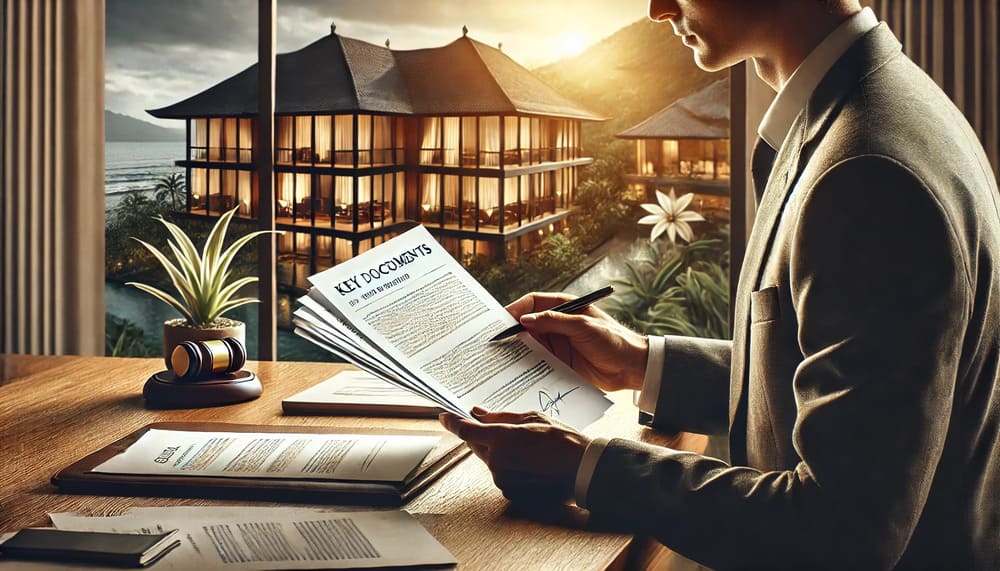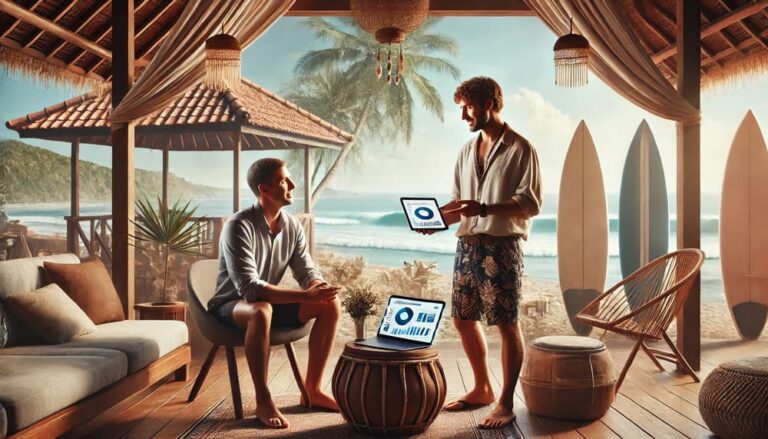- Notary Deed of Establishment: This document is the official record of your company’s formation, detailing the names of shareholders, the amount of capital invested, and the company’s structure. A local notary must draft this document in compliance with Indonesian law.
- Ministry Approval: After the notary deed is complete, you’ll need to obtain approval from the Ministry of Law and Human Rights. This approval legitimizes your company as a recognized legal entity in Indonesia.
- NPWP (Tax Identification Number): Every business in Indonesia requires a Tax Identification Number, which is essential for fulfilling your tax obligations. This number is issued by the Indonesian tax office and is linked to your PMA.
- NIB (Business Identification Number): The NIB is a vital document that functions as a general business license. It also acts as an import license and is necessary for customs registration. You can obtain the NIB through the Online Single Submission (OSS) system, which streamlines the process for business owners.
- SIUP (Trading Business License): The SIUP is required for companies involved in trading activities. While a hotel may not be a traditional trading business, this license is still required for general business operations, ensuring that your business is recognized by the Indonesian government.
- IUP (Tourism Business License): For any business in the tourism sector, including hotels, the IUP is essential. This license is issued by the local government and permits you to operate within the tourism industry. It’s a critical document that aligns your business with Bali’s tourism regulations.
- TDUP (Tourism Registration Certificate): The TDUP officially registers your hotel as a recognized tourism business in Bali. This certificate is crucial for maintaining compliance with tourism laws and regulations.
- Hak Sewa (Leasehold Agreement): A leasehold agreement allows you to lease land for a fixed period, usually between 25 to 30 years, with an option to renew. This agreement should be thorough, covering all terms related to the lease, including duration, payment, and renewal options. Ensure that the agreement is legally binding and protects your interests as an investor.
- IMB (Building Permit): The IMB is essential for any construction or renovation projects on the leased land. This permit ensures that your hotel complies with local zoning regulations and building codes, which is crucial for avoiding legal issues down the line.
- Environmental Study: The AMDAL process begins with a detailed environmental study. This study assesses how your hotel project will impact the local environment, including the ecosystem, water resources, and community health.
- Stakeholder Engagement: Part of the AMDAL process involves engaging with local communities and stakeholders. This engagement ensures that the concerns and inputs of those affected by the project are taken into account.
- Regulatory Approval: After completing the environmental study and stakeholder consultations, you must submit the findings to the local Environmental Agency for approval. This approval is necessary before any construction work can begin.
- KITAS (Temporary Stay Permit): The KITAS is a temporary residence permit that allows you to stay and work in Indonesia for an extended period. This permit is essential for foreign business owners who intend to manage their hotels directly.
- IMTA (Work Permit for Foreign Workers): If your hotel requires the expertise of foreign employees, you’ll need to obtain an IMTA for each foreign worker. The IMTA ensures that you comply with Indonesian labor laws and can legally employ foreign staff.
- Trademark Application: To protect your hotel’s name and logo, you must file a trademark application with the Directorate General of Intellectual Property Rights in Indonesia. This application should include all distinctive elements of your brand that you wish to protect
- Proof of Commercial Use: In some cases, you may need to demonstrate that your trademark is actively used in commerce. This could include marketing materials, business contracts, or other documentation that shows your brand is operational.
- Property Insurance: This insurance covers any physical damage to your hotel, including the building, equipment, and furnishings. It’s essential for protecting your assets against risks such as fire, theft, or natural disasters.
- Public Liability Insurance: Public liability insurance protects your hotel against claims made by guests or visitors for injuries or damages that occur on your property. This coverage is crucial for mitigating legal risks and potential financial losses.
- Business Interruption Insurance: In the event of an unforeseen disruption, such as a natural disaster or major renovation, business interruption insurance provides coverage for lost income. This insurance helps you maintain financial stability during periods when your hotel is unable to operate.







